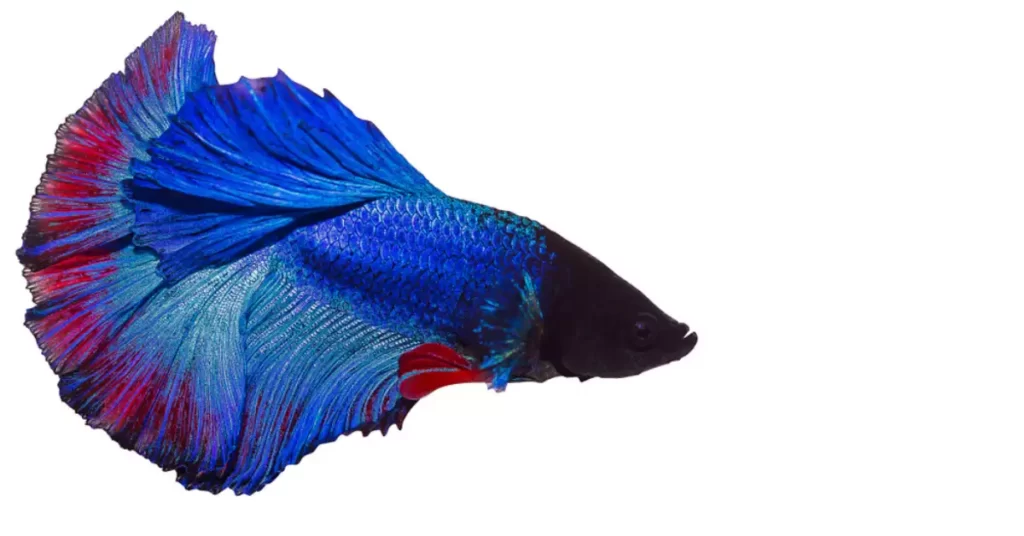Fishkeeping is an art that requires a balance of knowledge, skill, and patience. Among the many species of fish, betta fish are particularly popular for their vibrant colors and distinct personalities.
However, betta fish, like any other aquatic species, need a properly cycled tank to thrive. In this article, we will explore the process of tank cycling and discuss whether or not a betta fish can survive a tank cycle.
We will also address common questions and concerns regarding betta fish care and tank maintenance.
What is Tank Cycling?
Understanding the Nitrogen Cycle
To understand tank cycling, it is important to first learn about the nitrogen cycle. This is a natural process that occurs in all aquatic environments, including fish tanks.
The nitrogen cycle involves the conversion of harmful ammonia (produced by fish waste, uneaten food, and decomposing plant matter) into nitrite and then into nitrate, which is less toxic to fish.
The Role of Beneficial Bacteria
Tank cycling is all about establishing a colony of beneficial bacteria that can efficiently convert ammonia to nitrite and nitrite to nitrate.
These bacteria grow on surfaces in the tank, including the substrate, decorations, and filter media.
It takes time for these colonies to establish themselves, which is why tank cycling is essential before introducing fish to their new home.

The Process of Tank Cycling
Fishless Cycling
Fishless cycling is the preferred method for establishing a healthy bacterial colony in your tank. It involves adding a source of ammonia to the tank without fish present.
This allows the beneficial bacteria to grow and reproduce, eventually reaching a point where they can effectively process the ammonia produced by fish waste.
Fish-In Cycling
Fish-in cycling is the process of cycling a tank with fish present. This is not recommended, as it exposes fish to harmful levels of ammonia and nitrite, which can cause stress, illness, and even death.
However, some aquarists still use this method when they are unaware of the fishless cycling process or have no other options available.
Can a Betta Fish Survive a Tank Cycle?
Betta fish are hardy creatures, but subjecting them to a tank cycle can be risky. While some betta fish may survive a fish-in cycle, they will be under tremendous stress, which can lead to a weakened immune system, making them more susceptible to diseases and parasites.
Therefore, it is always best to cycle your tank using the fishless method to ensure a safe environment for your betta fish.
Tips for Cycling a Betta Fish Tank
Use a Water Testing Kit
Regularly testing your tank water for ammonia, nitrite, and nitrate levels is crucial during the cycling process.
This will help you monitor the progress and ensure that your tank is safe for your betta fish.
Maintain Optimal Water Conditions
Betta fish thrive in warm, slightly acidic water. Aim to maintain a temperature between 76-82°F (24-28°C) and a pH between 6.8 and 7.4.
Utilize Live Plants
Live plants can help speed up the cycling process and improve water quality by absorbing ammonia and nitrite.
Some good plant choices for betta fish tanks include java fern, anubias, and cryptocoryne.
FAQs
How long does it take to cycle a betta fish tank?
The time it takes to cycle a tank can vary depending on factors such as the size of the tank, water conditions, and the method used. However, it generally takes between 4-6 weeks for a tank to complete the cycling process.
Can I add betta fish to a partially cycled tank?
It is not recommended to add betta fish to a partially cycled tank, as they may still be exposed to harmful levels of ammonia and nitrite. It is best to wait until the tank is fully cycled before introducing your betta fish.
Can I speed up the tank cycling process?
There are a few ways to speed up the tank cycling process. One method is to add a source of beneficial bacteria, which can be purchased in liquid or powder form from pet stores.
Another option is to use filter media or substrate from an established, healthy aquarium to “seed” the new tank with beneficial bacteria.
Conclusion
The health and well-being of your betta fish should always be a top priority. As such, it is crucial to properly cycle your tank before introducing your betta fish.
While betta fish are known for their hardiness, subjecting them to a tank cycle can be detrimental to their health.
By following the fishless cycling method and maintaining optimal water conditions, you can create a safe and comfortable environment for your betta fish to thrive.